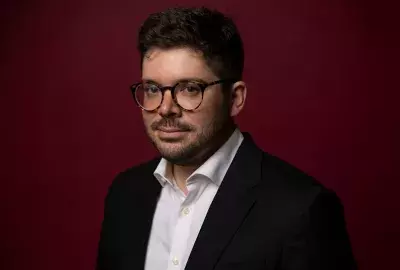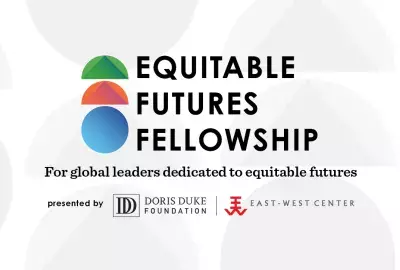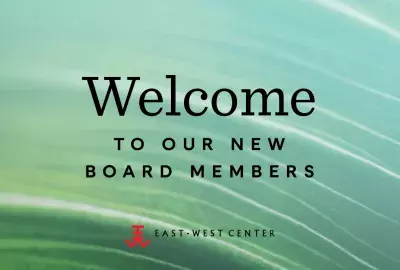Error message
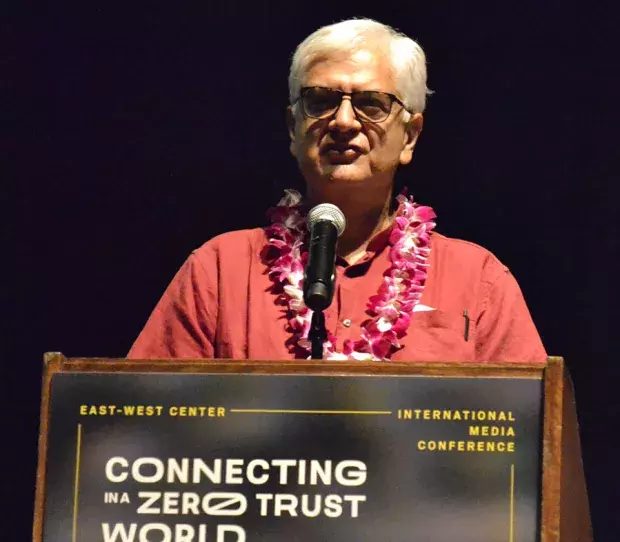
OFFICE/DEPARTMENT
HONOLULU (June 30, 2022) -- At an awards banquet held as part of the East-West Center’s International Media Conference this week in Honolulu, the Center recognized seven journalists on Tuesday evening who exemplify the impact that EWC media program participants have had throughout Asia and the Pacific.
Since they began in 2014, the “Journalists of Courage and Impact” awards have been given out at each of the Center’s biennial media conferences, with 22 recipients thus far. After accepting their awards from EWC President Suzanne Vares-Lum and former Hawai‘i Governor John Waihe‘e, a member of the Center’s governing board, this year’s honorees spoke about the importance of the free press in this era of distrust, linking back to the conference theme of “Connecting in a Zero-Trust World.”
Ensuring the right to information
“Tyrants who rule totalitarian states are not the only threat to media globally,” said awardee Kunda Dixit, chief editor of the Nepali Times, at the banquet sponsored by the Pacific Century Foundation. “The threat is more from populist despots who get themselves elected by co-opting the institutions of democracy, and then proceed to dismantle and undermine those very institutions that got them into power.”
“We feel ourselves responsible to ensure the right for the people to access information, to know what’s going on around them,” said Afghan journalist Parwiz Kawa, now with Afghanistan International TV in Washington, DC. “Afghanistan is, right now, full of censorship. But still there are media outlets operating inside and outside Afghanistan for the people there. It has been always the support of people that enables reporting from Afghanistan.”
Facing danger
The threats faced by journalists was a big focus of the night. “In Sri Lanka, as in many places, investigative journalism is practiced at great risk,” said Dilrukshi Handunnetti, executive director at the Colombo-based Center for Investigative Reporting. She dedicated her award to “all those Sri Lankan journalists who have been killed, assaulted, condemned as terrorists, driven out of their homes, denied their livelihood,” as well as “all those courageous journalists working everywhere who are hardly recognized, but still do what you do on a regular basis. Yours is the true courage and impact.”
Longtime Honolulu newspaperman Jerry Burris, who is traveling out of the country, wrote in remarks read by a friend: “As American journalists, we are used to practicing freely and without interference … not so for many journalists around Asia and the Pacific who work every day in the most perilous of conditions, underfunded and under attack by both their leaders and their very own government.” Burris wrote that he hopes the East-West Center “will continue to serve these journalists as a place of refuge and a center of support, as they continue their critical work.”
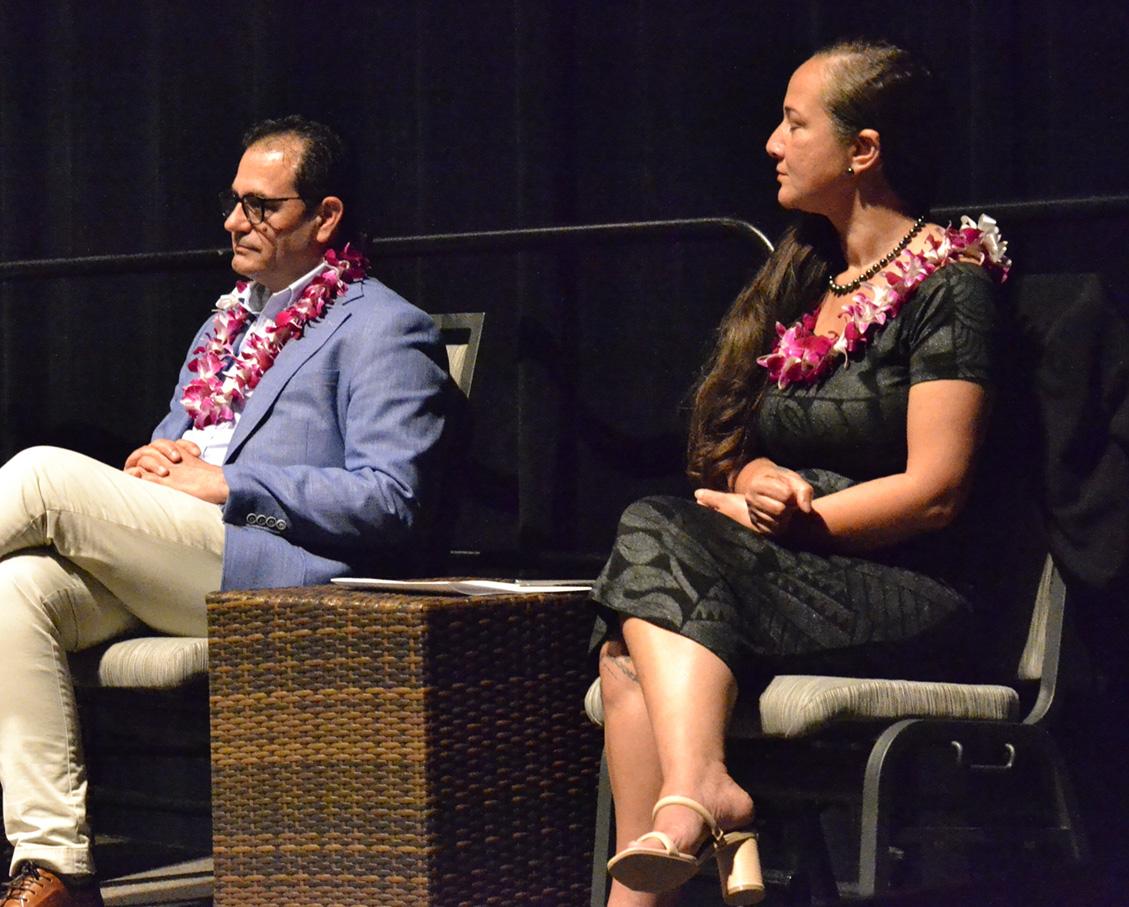
Dr. Lagipoiva Cherelle Jackson, editor of Pacific Environment Weekly in Sāmoa, accepted her award on “on behalf of the women journalists of the Pacific for whom honors such as these are rarely bestowed.” Jackson, the first Pacific Island journalist to receive the award, said that women journalists globally “continue to face severe threats in the pursuit of truth. I take this opportunity to call for better protections for women journalists around the world, to ensure that we can continue to practice journalism free of threats and risks to our lives and the lives of those whom we love.”
Helen Altonn, a retired reporter for the former Honolulu Star-Bulletin, spoke via remote video about her varied, 57-year journalism career, saying, “I look with awe at the dramatic changes and risks of covering news in today's chaotic world. Just reporting information has become, I feel, an issue. We had great careers, but I feel lucky they are behind us in this troubled environment. We don't have to face these horrific issues of polarized politics, a divided country, hostility, false information, and outright lies.”
Speaking in a prerecorded video message, Soe Myint, editor in chief of Myanmarʻs Mizzima Media Group, spoke about his 24-year exile during the previous military dictatorship, and how the last year’s coup forced Mizzima to set up temporary headquarters in the jungle after the military regime shut down their offices in Yangon, arresting a number of staff. “I am often asked what keeps me going, and I respond that it is the youth who surround me in our work at Mizzima,” he said. “They are always encouraging me to keep going.”
HONOLULU (June 30, 2022) -- At an awards banquet held as part of the East-West Center’s International Media Conference this week in Honolulu, the Center recognized seven journalists on Tuesday evening who exemplify the impact that EWC media program participants have had throughout Asia and the Pacific.
Since they began in 2014, the “Journalists of Courage and Impact” awards have been given out at each of the Center’s biennial media conferences, with 22 recipients thus far. After accepting their awards from EWC President Suzanne Vares-Lum and former Hawai‘i Governor John Waihe‘e, a member of the Center’s governing board, this year’s honorees spoke about the importance of the free press in this era of distrust, linking back to the conference theme of “Connecting in a Zero-Trust World.”
Ensuring the right to information
“Tyrants who rule totalitarian states are not the only threat to media globally,” said awardee Kunda Dixit, chief editor of the Nepali Times, at the banquet sponsored by the Pacific Century Foundation. “The threat is more from populist despots who get themselves elected by co-opting the institutions of democracy, and then proceed to dismantle and undermine those very institutions that got them into power.”
“We feel ourselves responsible to ensure the right for the people to access information, to know what’s going on around them,” said Afghan journalist Parwiz Kawa, now with Afghanistan International TV in Washington, DC. “Afghanistan is, right now, full of censorship. But still there are media outlets operating inside and outside Afghanistan for the people there. It has been always the support of people that enables reporting from Afghanistan.”
Facing danger
The threats faced by journalists was a big focus of the night. “In Sri Lanka, as in many places, investigative journalism is practiced at great risk,” said Dilrukshi Handunnetti, executive director at the Colombo-based Center for Investigative Reporting. She dedicated her award to “all those Sri Lankan journalists who have been killed, assaulted, condemned as terrorists, driven out of their homes, denied their livelihood,” as well as “all those courageous journalists working everywhere who are hardly recognized, but still do what you do on a regular basis. Yours is the true courage and impact.”
Longtime Honolulu newspaperman Jerry Burris, who is traveling out of the country, wrote in remarks read by a friend: “As American journalists, we are used to practicing freely and without interference … not so for many journalists around Asia and the Pacific who work every day in the most perilous of conditions, underfunded and under attack by both their leaders and their very own government.” Burris wrote that he hopes the East-West Center “will continue to serve these journalists as a place of refuge and a center of support, as they continue their critical work.”

Dr. Lagipoiva Cherelle Jackson, editor of Pacific Environment Weekly in Sāmoa, accepted her award on “on behalf of the women journalists of the Pacific for whom honors such as these are rarely bestowed.” Jackson, the first Pacific Island journalist to receive the award, said that women journalists globally “continue to face severe threats in the pursuit of truth. I take this opportunity to call for better protections for women journalists around the world, to ensure that we can continue to practice journalism free of threats and risks to our lives and the lives of those whom we love.”
Helen Altonn, a retired reporter for the former Honolulu Star-Bulletin, spoke via remote video about her varied, 57-year journalism career, saying, “I look with awe at the dramatic changes and risks of covering news in today's chaotic world. Just reporting information has become, I feel, an issue. We had great careers, but I feel lucky they are behind us in this troubled environment. We don't have to face these horrific issues of polarized politics, a divided country, hostility, false information, and outright lies.”
Speaking in a prerecorded video message, Soe Myint, editor in chief of Myanmarʻs Mizzima Media Group, spoke about his 24-year exile during the previous military dictatorship, and how the last year’s coup forced Mizzima to set up temporary headquarters in the jungle after the military regime shut down their offices in Yangon, arresting a number of staff. “I am often asked what keeps me going, and I respond that it is the youth who surround me in our work at Mizzima,” he said. “They are always encouraging me to keep going.”





